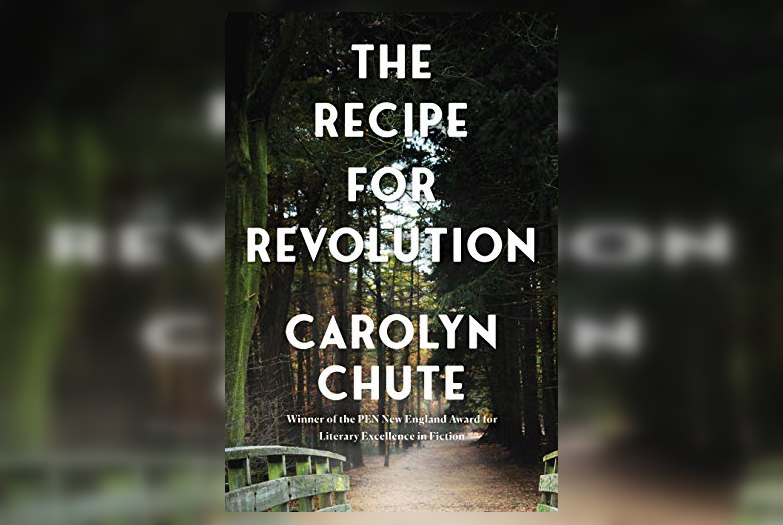While reading Carolyn Chute’s new novel, The Recipe for Revolution, you will spend a good deal of time trying to figure out where she’s coming from. That’s because this book, which is the third in a sprawling, four-novel epic about the downfall of a survivalist-style cult called the “Settlement,” is an explicitly political text from top to bottom. In often-jarring style, with a polyphony of voices employed throughout, each scene is written from the perspective of a different character. But Chute, who has often referred to herself as “no-wing,” resists strict categorization at every turn.
Gordon, the Settlement’s charismatic leader, preaches against the exploitation of the powerless, both at home and abroad, by capitalism’s ruling class. He is the closest thing we get to a protagonist, or at least someone to root for. He also has close to twenty wives and wants more, his lust ultimately becoming his undoing when a reporter writes an expose that draws national attention to the Settlement. His character zigzags between captivating and horrifying in equal measure throughout The Recipe’s more than 750-page runtime. But while Gordon is central to the story, he is not, strictly speaking, the main character.
Chute’s manic style is best emphasized by this: the book provides readers with two lists at its outset. The first is a set of symbols representing each of the voices in which the novel is written. Readers will need this. The second is a thirteen-page character list. Of this, Chute chides the reader, “Don’t twist your head trying to keep every character straight.” I gave up referring to the list before long. There is no single protagonist, much like there is no single point of view. There is a plot revolving around the titular Recipe for Revolution, but it serves mostly as a MacGuffin to justify whiplash transitions between winding sweeps of plot. The plot, meanwhile, is more concerned with making a grand thesis for Chute’s politics than anything else.
It is a book that dares you to grapple with it, then mocks you for the attempt. The Recipe for Revolution has an axe to grind not only against capitalist warmongers and resource hoarders, but against elitist urban liberals who look down on the sort of people that might join the Settlement. But a strange sort of sense does emerge when the book is viewed through the lens of a writer who has organized militias in the hardscrabble forests of Maine. The character list has a section for, “The Devil,” and it only has one entry: Bruce Hummer. Hummer is the CEO of a Lockheed-like weapons manufacturer that is making moves toward automation while laying its workers off by the thousands. “Bruce Hummer,” we are told, “is one of the biggest parts of what makes the world burn.” Each character represents something, some more obviously than others.
And yet, filled with grand ideas and caustic screeds to the exclusion of structure though it may be, The Recipe for Revolution feels resonant now, when so many of us are trying to make sense of a world in which we seem to matter less and less. As we watch from our current point in time the giant mechanisms by which politicians and billionaires exercise their power over the masses, we may find ourselves viewing the inhabitants of the Settlement in a kinder light than we might have at the beginning of the century. The Settlement is a place where people can make sense of their lives and find a measure of dignity.
Although Chute began this series as a completed manuscript of mammoth proportions at the tail end of the last Bush presidency—forced by her publisher to divvy it up into four separate books—its politics feel ever more resonant in this 2020 installment. It is chaotic, brazen in its attempted scope, and far more obfuscatory than it needs to be. It is also essential reading.




